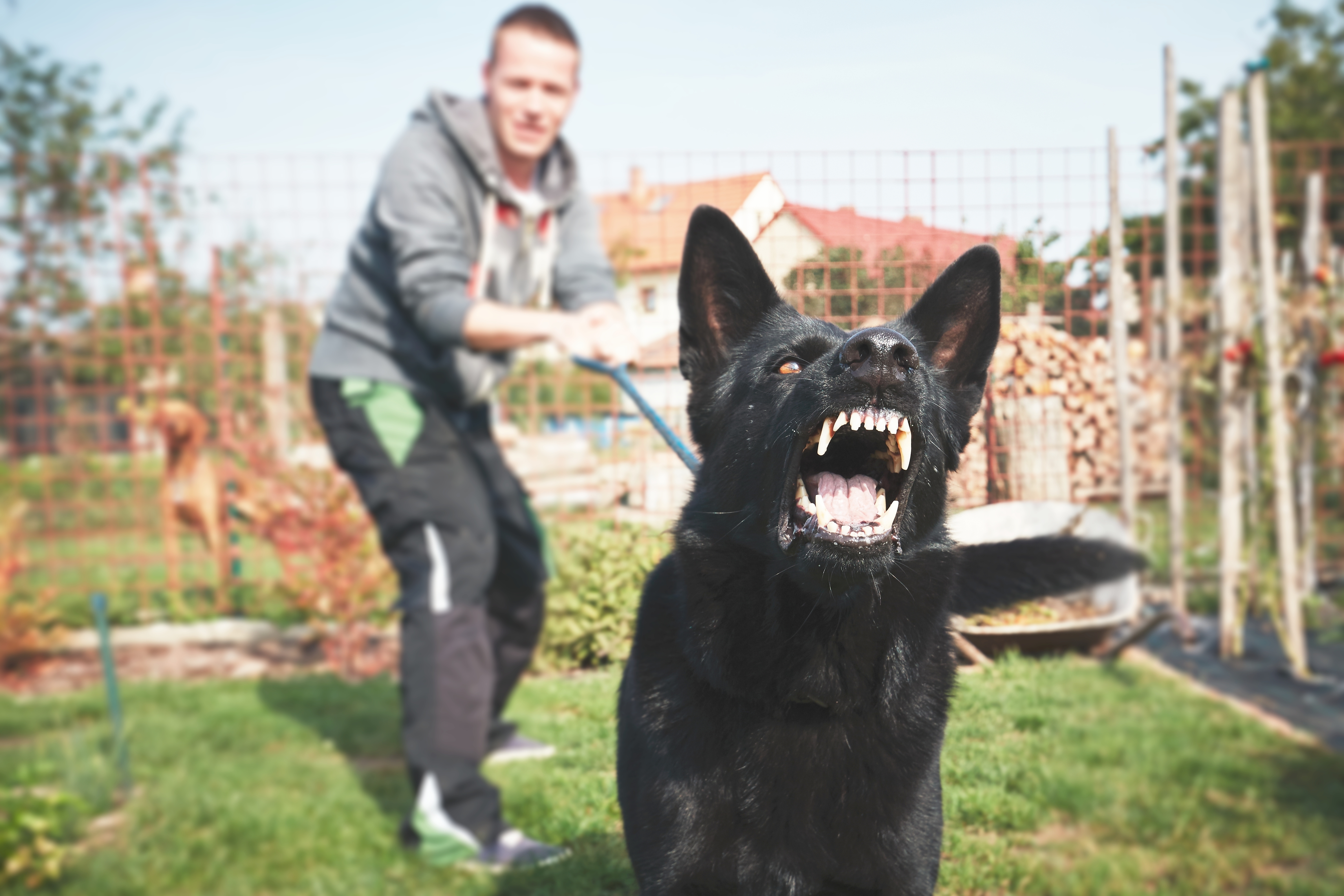ST. GEORGE — While St. George city code recommends that a dog be euthanized after violating the “three strikes” rule regarding bites and attacks, it’s not always the end of their story.
A “dangerous animal committee” in St. George has the power to offer a second chance to dogs that are deemed vicious so long as the owner can prove that it is not inherently dangerous.
According to city code, after a dog has been deemed vicious by animal control for having three reported cases of biting or attacking a person or other animal – or even one severe attack – the animal is impounded, and the owner is given the choice to either allow their dog to be euthanized or to make an appeal against it.
“The last thing we want to do is have somebody or another animal hurt that bad, but we also don’t want to put animals to sleep either,” St. George Animal Shelter supervisor April Jewell said. “Obviously if it’s so vicious that it’s a public safety issue, or even other animal issue, we’ve got to do the right thing, and it’s tough. But we’ve got to think of the overall safety of the community.”
Even animals that are considered dangerous have rights, including the right to be treated humanely. And the owner of the animal has the right to appeal the decision of euthanization, requesting a vicious animal hearing with the dangerous animal committee in which the owner can present witnesses, evidence – including reliable hearsay – and reports from behaviorist evaluations.

The owner must make a written request within 10 days to the city attorney’s office, and a hearing must be scheduled at city hall as soon as possible to determine the dog’s fate.
Members of the committee are appointed by the mayor and currently consists of Councilman Jimmie Hughes, planning commission member Dannielle Larkin and community volunteer Christine Nelson.
A hearing examiner is also appointed by the city attorney for each individual case. The examiner is responsible for acting as judge in the hearing and making the final decision after reviewing testimonies and evidence from the dog’s owner, animal control officers who have had dealings with the animal, an animal behaviorist and any other relevant witnesses.
Deputy City Attorney Paula Houston is responsible for coordinating vicious dog hearings, gathering witnesses and legally advising the committee.
“All of the cases are difficult. Most of the people involved are animal lovers, have animals and are very sad and often emotional about the decisions they have to make,” she said.
When faced with a case, the committee’s first order of business is to determine whether there has actually been a violation of the law. If not, the animal can be returned to its owner. If there has been a violation, the committee must look at the circumstances of the case and the recommendations of a behavioral specialist on whether the animal can be trained or not.
To make this determination, animal control typically brings in a canine behaviorist from the Best Friends Animal Society to evaluate the dog before an appeal is even made.
Jewell said the behaviorist tries to determine what may trigger the dog’s aggression and make any recommendations on what kind of training might help the dog, “if there is any training.”
If training is a possible solution, the animal will likely need to be trained by a professional, and the owners will have to be compliant with the city’s vicious animal laws, which require the dog to be confined to the owner’s property unless it is on a leash and to wear a muzzle until it is no longer considered vicious.
Even if a dog undergoes training, there is no guarantee it can be “cured” of its aggressive tendencies. According to the Best Friends Animal Society, aggressive dogs should be separated from other dogs or people that it may hostile to, given plenty of exercise, checked by a veterinarian for any underlying health issues, spayed or neutered and taught basic commands such as “sit,” “stay” and “come.”

Dog trainers and behaviorists can plan specific training techniques for the animal based on its individual needs; however, Houston said if the experts say the animal cannot be trained, it is euthanized.
The committee is sometimes presented with difficult and unusual situations, as was the case with Champ, a German shepherd owned by Willie Mosher, which tried to bite several officers when they responded to a domestic violence incident at the owner’s home last year.
Though Champ had no prior record of aggression, his owners were notified of the city’s intent to euthanize him for violating the “three strikes” rule for trying to bite multiple officers during the incident. Champ’s owners chose to make an appeal before the committee, but the hearing examiner for the case, St. George Fire Department Deputy Chief Kevin Taylor, ruled that Champ was dangerous and should be euthanized.
Champ’s family took his story to social media, which went viral and prompted local officials to delay euthanizing him and reevaluate his case. Houston said that City Attorney Shawn Guzman, along with the owner’s attorney, were able to work out an agreement, and Champ was released to Mosher’s mother.
The dangerous animal committee reviews very few vicious animal cases, usually hearing around two or three a year.
“Thankfully, we do not do many of these at all,” Jewell said. “I’m glad that we don’t encounter that very often.”
Copyright St. George News, SaintGeorgeUtah.com LLC, 2019, all rights reserved.